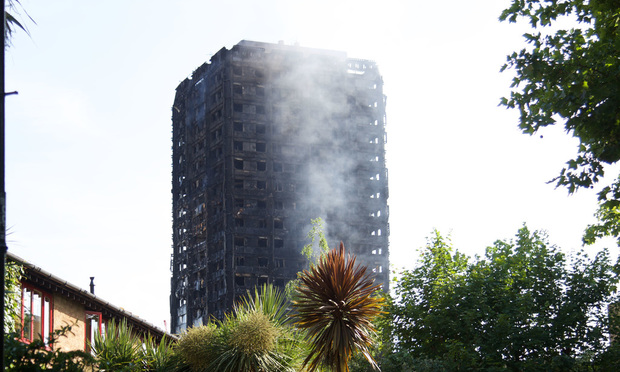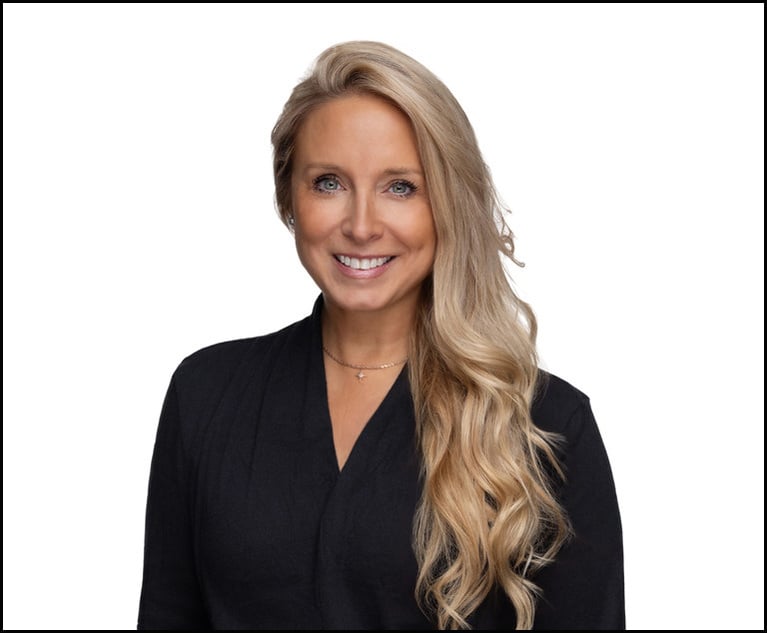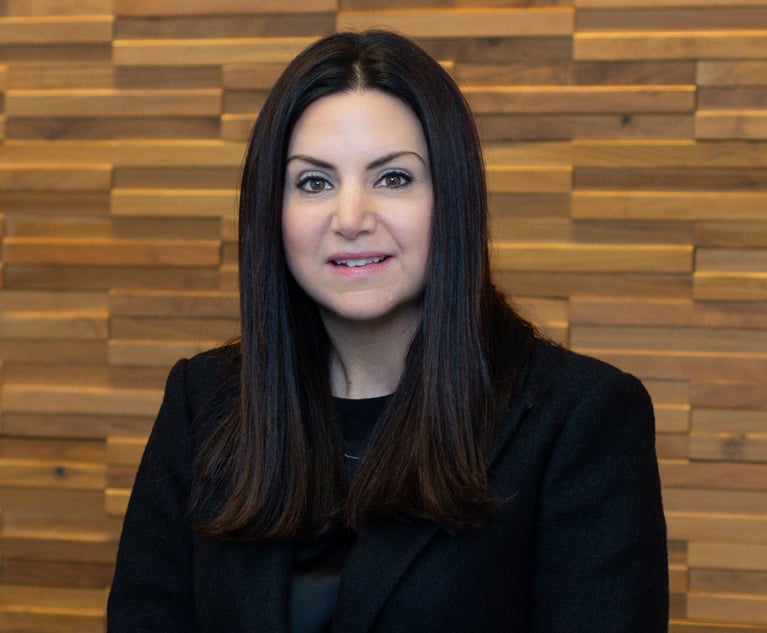Grenfell Tower Fire Victims Fight Motion to Dismiss in Phila. Federal Court
The plaintiffs filed a reply Monday, contending that the defendants mischaracterized their allegations as "veil-piercing or alter ego theories."
October 01, 2019 at 03:59 PM
4 minute read
 Grenfell Tower after the fire June 14, 2017. Photo: Shutterstock
Grenfell Tower after the fire June 14, 2017. Photo: Shutterstock
The families of the victims of the deadly 2017 fire in London's Grenfell Tower are fighting back against claims that the litigation should be thrown out of U.S. federal court. The dispute marks the plaintiffs' first major hurdle in what is expected to be a tenaciously litigated case.
In late August, Arconic, Saint-Gobain Corp. and Whirlpool filed a motion to dismiss the lawsuit, arguing that the plaintiffs failed to make legal claim under either Pennsylvania or English law, and improperly sued the U.S.-based companies, while failing to join the necessary foreign entities.
The plaintiffs, however, filed a reply Monday, contending that the defendants mischaracterized their allegations as "veil-piercing or alter ego theories."
"They are not. As the complaint makes clear, plaintiffs are bringing direct claims against these U.S.-based defendants for their respective U.S.-based actions responsible for this horrific calamity," the plaintiffs said in the 50-page motion filed by Robert J. Mongeluzzi of Saltz Mongeluzzi Barrett & Bendesky. "Plaintiffs are not simply seeking to hold defendants liable for the actions of their foreign affiliates, but rather allege that defendants are each directly liable based on their own conduct."
The lawsuit, which involves more than 200 named plaintiffs and is one of the largest products liability lawsuits in Pennsylvania history, was filed in June in state court, but the defendants quickly removed the case to the U.S. District Court for the Eastern District of Pennsylvania. The suit stems from the June 2017 fire that engulfed the 24-story building in the North Kensington section of West London and left 72 dead, as well as 70 injured.
The 575-page complaint lodges claims against Arconic, which allegedly made the building's cladding; Saint-Gobain, doing business as Celotex, which was named as the maker of the tower's allegedly defective insulation; and Whirlpool, which owned the company that made the refrigerator where the fire allegedly started.
The lawsuit brought claims on behalf of 177 survivors and 69 families of persons who died in the fire, and contended that decisions behind the design and marketing of the cladding and the insulation happened in the companies' Pennsylvania facilities.
The defendants, however, argue that all of the alleged activities were conducted by foreign subsidiaries or affiliates, in foreign jurisdictions. And when it comes to the defendants named in the complaint, the companies argue, they cannot be held liable for the alleged conduct of other entities.
"For instance, as to the two named Arconic defendants, plaintiffs do not allege that either of them actually manufactured or supplied the allegedly defective products used on Grenfell Tower—a fundamental prerequisite for product liability claims nuder Pennsylvania law," the defendants' joint motion to dismiss said. "Plaintiffs' wholly conclusory veil-piercing allegations fall short of the standard required to survive a motion to dismiss."
The motion was filed by Sean Grimsley of Bartlit Beck, who represented Arconic; Robert Heim of Dechert, who represented Saint-Gobain; and Jones Day attorney Leon DeJulius, who represented Whirlpool.
Regarding the allegations against Saint-Gobain Corp., the company contended that there is no company named simply Celotex, which is the name in the complaint. It further argued that it does not own or control Celotex Ltd., which is the U.K. company that manufactured the insulation.
Whirlpool also argued it did not own the company that manufactured the refrigerators implicated by plaintiffs in the complaint until after that equipment was put on the market.
Plaintiff failed to "explain how their theories permit them to impose liability retroactively on Whirlpool for Indesit's alleged conduct that occurred six years before Whirlpool had anything at all to do with Indesit," the defendants' motion said.
The plaintiffs, however, replied citing corporate communications and public filings that allegedly showed the defendants had direct control over the products at issue in the fire.
"When plaintiffs' claims are properly viewed for what they are—direct liability claims against U.S.-based defendants for their U.S.-based conduct—it is apparent that plaintiffs' claims enjoy substantial factual support and are well-pleaded under the relevant law," the plaintiffs said.
Counsel for the defendants each did not return a message seeking comment, and Mongeluzzi declined to comment about a pending motion.
This content has been archived. It is available through our partners, LexisNexis® and Bloomberg Law.
To view this content, please continue to their sites.
Not a Lexis Subscriber?
Subscribe Now
Not a Bloomberg Law Subscriber?
Subscribe Now
NOT FOR REPRINT
© 2025 ALM Global, LLC, All Rights Reserved. Request academic re-use from www.copyright.com. All other uses, submit a request to [email protected]. For more information visit Asset & Logo Licensing.
You Might Like
View All


Pa. Superior Court Rules Pizza Chain Liable for Franchisee Driver's Crash
4 minute read
Trending Stories
- 1Thursday Newspaper
- 2Public Notices/Calendars
- 3Judicial Ethics Opinion 24-117
- 4Rejuvenation of a Sharp Employer Non-Compete Tool: Delaware Supreme Court Reinvigorates the Employee Choice Doctrine
- 5Mastering Litigation in New York’s Commercial Division Part V, Leave It to the Experts: Expert Discovery in the New York Commercial Division
Who Got The Work
J. Brugh Lower of Gibbons has entered an appearance for industrial equipment supplier Devco Corporation in a pending trademark infringement lawsuit. The suit, accusing the defendant of selling knock-off Graco products, was filed Dec. 18 in New Jersey District Court by Rivkin Radler on behalf of Graco Inc. and Graco Minnesota. The case, assigned to U.S. District Judge Zahid N. Quraishi, is 3:24-cv-11294, Graco Inc. et al v. Devco Corporation.
Who Got The Work
Rebecca Maller-Stein and Kent A. Yalowitz of Arnold & Porter Kaye Scholer have entered their appearances for Hanaco Venture Capital and its executives, Lior Prosor and David Frankel, in a pending securities lawsuit. The action, filed on Dec. 24 in New York Southern District Court by Zell, Aron & Co. on behalf of Goldeneye Advisors, accuses the defendants of negligently and fraudulently managing the plaintiff's $1 million investment. The case, assigned to U.S. District Judge Vernon S. Broderick, is 1:24-cv-09918, Goldeneye Advisors, LLC v. Hanaco Venture Capital, Ltd. et al.
Who Got The Work
Attorneys from A&O Shearman has stepped in as defense counsel for Toronto-Dominion Bank and other defendants in a pending securities class action. The suit, filed Dec. 11 in New York Southern District Court by Bleichmar Fonti & Auld, accuses the defendants of concealing the bank's 'pervasive' deficiencies in regards to its compliance with the Bank Secrecy Act and the quality of its anti-money laundering controls. The case, assigned to U.S. District Judge Arun Subramanian, is 1:24-cv-09445, Gonzalez v. The Toronto-Dominion Bank et al.
Who Got The Work
Crown Castle International, a Pennsylvania company providing shared communications infrastructure, has turned to Luke D. Wolf of Gordon Rees Scully Mansukhani to fend off a pending breach-of-contract lawsuit. The court action, filed Nov. 25 in Michigan Eastern District Court by Hooper Hathaway PC on behalf of The Town Residences LLC, accuses Crown Castle of failing to transfer approximately $30,000 in utility payments from T-Mobile in breach of a roof-top lease and assignment agreement. The case, assigned to U.S. District Judge Susan K. Declercq, is 2:24-cv-13131, The Town Residences LLC v. T-Mobile US, Inc. et al.
Who Got The Work
Wilfred P. Coronato and Daniel M. Schwartz of McCarter & English have stepped in as defense counsel to Electrolux Home Products Inc. in a pending product liability lawsuit. The court action, filed Nov. 26 in New York Eastern District Court by Poulos Lopiccolo PC and Nagel Rice LLP on behalf of David Stern, alleges that the defendant's refrigerators’ drawers and shelving repeatedly break and fall apart within months after purchase. The case, assigned to U.S. District Judge Joan M. Azrack, is 2:24-cv-08204, Stern v. Electrolux Home Products, Inc.
Featured Firms
Law Offices of Gary Martin Hays & Associates, P.C.
(470) 294-1674
Law Offices of Mark E. Salomone
(857) 444-6468
Smith & Hassler
(713) 739-1250





